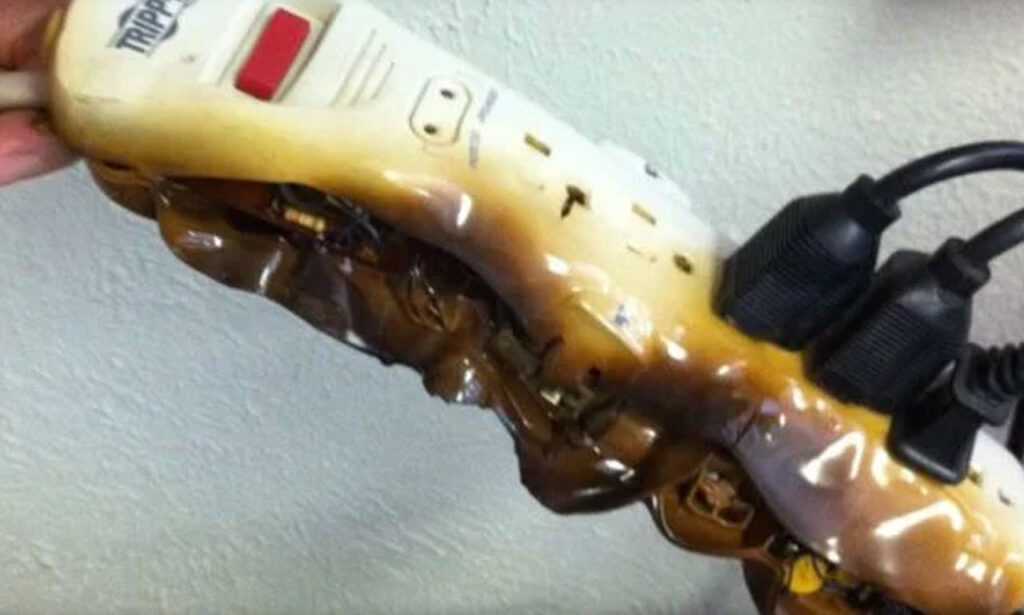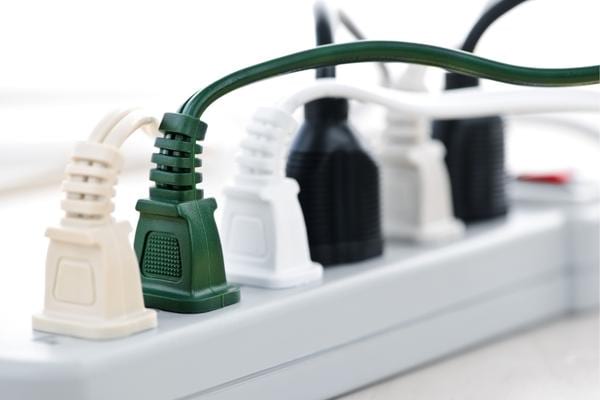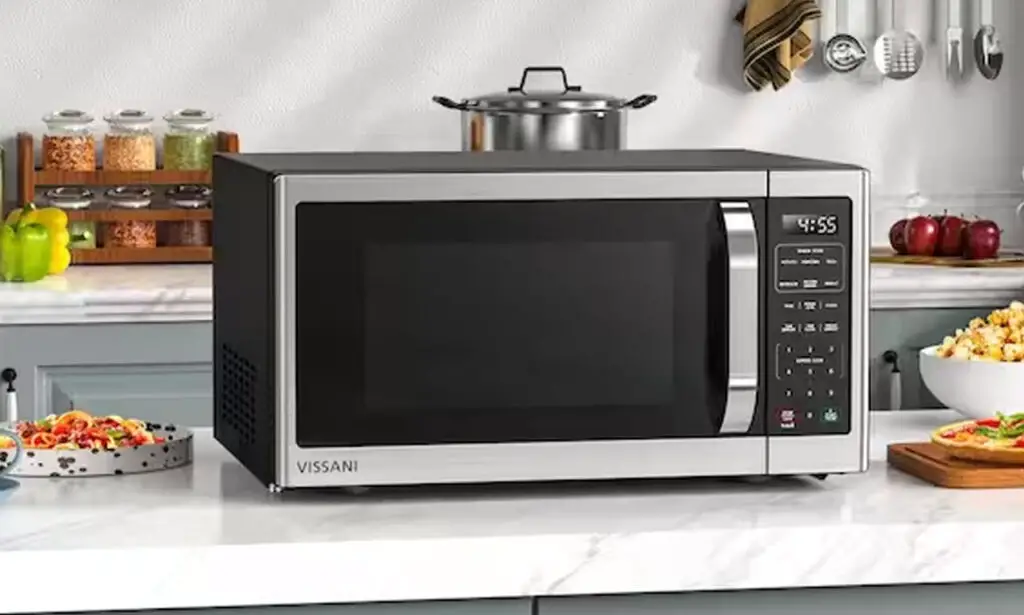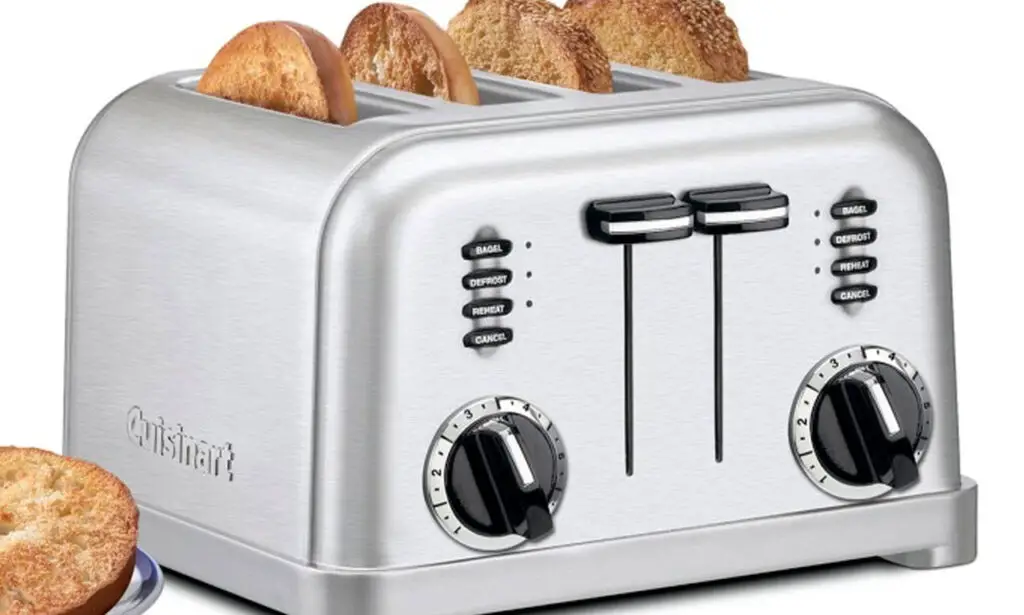
When we think of the past, one of the first thoughts that runs through our mind is how people lived without electricity. Nowadays, we can’t even imagine a day without it because all of our appliances and devices run on electricity.
The truth is, however, that most homes don’t have enough power outlets to keep everything running and charged, so most of us rely on power strips without being aware that appliances that consume a lot of energy become dangerous fire hazards when we plug them into a power strip.
Although power strips are the thing to go to when it comes to charging your phone or power an entertainment setup, there are certain devices that should never be plugged into a power strip.
Air conditioners, space heaters, toasters, and other appliances that use high wattage can easily cause power strips to overheat, which can easily lead to a fire hazard.

Even before plugging anything into a power strip consider the ammount of power they support. This is usually listed on the product itself.
High-capacity appliances need to draw a lot of power through an electrical circuit to work. Keep in mind that an appliance does not need to be large in size to draw large amounts of power.
Below is the list of appliances that should never be plugged into a power strip.
1. The oven: Even though the oven is not used continually, it is a power-hungry appliance that should not be plugged into a power strip. In fact, it should be plugged into its own wall outlet on its own circuit.
2. Refrigerator: Refrigerators require a lot of power and frequently cycle on and off which can easily overload a power strip and cause damage. Much like the oven, refrigerators require a wall outlet dedicated solely to powering the appliance.

3. Washing Machine: When turned on, washing machines pull a lot of power. This is the main reason why these appliances shouldn’t share a receptacle with any other appliance or device.
Most washing machines use a max of up to 1400 watts, putting it dangerously close to the max load of most power strips. On top of that while working, washing machines are usually left unattended and work longer hours, at least an hour, which is long enough for a power strip to overheat.
4. Heating: Portable heaters should never be plugged into a power strip because most of them use 1,500 watts of energy on their high setting and they usually run for extended periods of time.

5. Microwave: Since they consume a lot of energy when used, most microwave ovens are plugged into their own receptacle and that is always a good practice.
6. Coffee Maker: Those who own a coffee maker are not fully aware of the power these appliances use, and this is why they should never be plugged into any sort of power strip or extension cord.

7. Toaster: You may think that browning up slices of bread or bagels doesn’t require a lot of energy, but the truth is that toasters use a lot of energy when in use and they should be plugged directly into the receptacle rather than a power strip.
8. Another Power Strip: Power strips are not meant to be used in conjunction with another power strip, although many people do exactly that. This, however, violates most safety codes because it can easily lead to overloading the electrical system.
9. Electronics (Computer, TV, Router): These types of electronic devices don’t necessarily use a lot of power on their own, but they are sensitive to surges and you can find yourself with a burnt out computer or TV very quickly if you plug them into a power strip.
If you want to protect these sensitive devices from power surges, opt for a power strip that functions as a surge protector.
After all the heartbreak, Jason Momoa found new love, and you’ll surely recognize her
About two years following his formal divorce from his ex-wife Lisa Bonet, Jason Momoa revealed his new relationship to the public. On Tuesday, May 21, he and actress Adria Arjona were seen cuddling on the PDA. They had declared their romance official on Instagram two days earlier.
When Momoa told fans he had been dating for a while during his appearance at the Basingstoke Comic Con in England in early May of this year, many began to speculate that the two were dating. “I’m in a relationship rather seriously. He said to the assembly, “I’ve been in a relationship for a time. “I’m really enjoying [my] privacy because everyone gives a fuck these days, whereas nobody did back in the day.”
The Aquaman star shared a number of pictures with Arjona recently, including some from their vacation to Japan. One of the photos shows the two on a beach, grinning. He tenderly referred to Arjona as “mi amor” in the post.

“You are a dream come true, Japan—you completely amazed me. We are very appreciative of everyone who opened their houses, allowing us to create memories with both old and new friends and go on yet another incredible journey with our beloved. Motorcycles and chaos on the road. All of my love, J,” the performer wrote.
Arjona herself has a Hollywod background. She has a number of noteworthy appearances, including those in Life of the Party, Pacific Rim Uprising, and a regular character in True Detective. Her breakout role was that of Dorothy Gale in the Emerald City adaption of the Oz book.Despite the fact that the show was canceled after just one season, she has since landed many important parts.
makes an appearance in the recently released comedy-action Netflix film Hit Man, which stars Glen Powell and was directed by Richard Linklater.
Momoa’s stepdaughter from his marriage to Bonet, Zoë Kravitz, directed Blink Twice, one of her most recent ventures.

Edgardo Canales, a lawyer, was Arjona’s husband. They had a private relationship, and no information about their breakup has been made public.
Momoa dated Eiza González for a few months in 2022 prior to Arjona.
The new pair appeared in the 2021 Netflix original series Sweet Girl together.



Leave a Reply